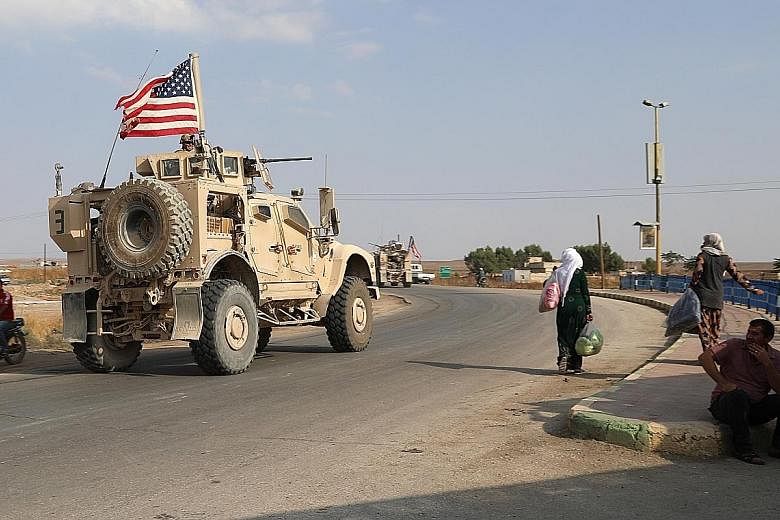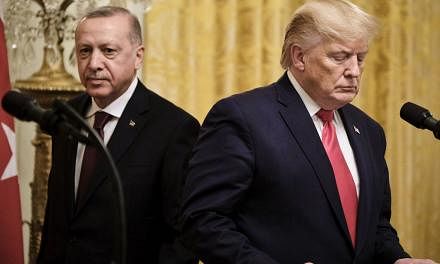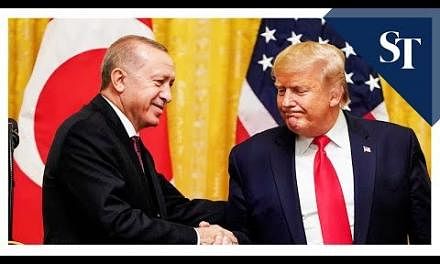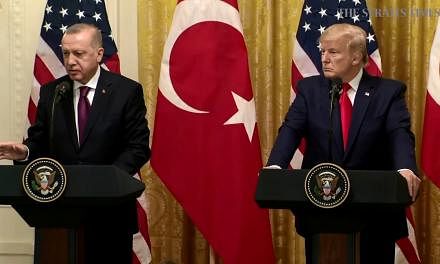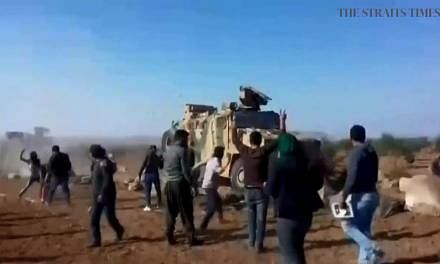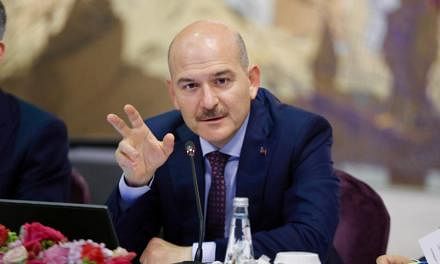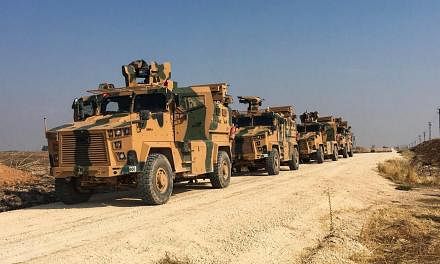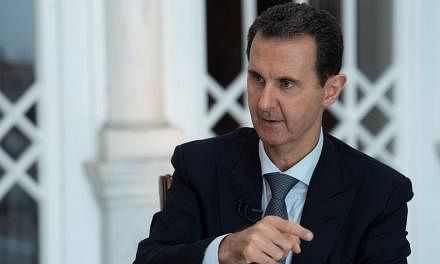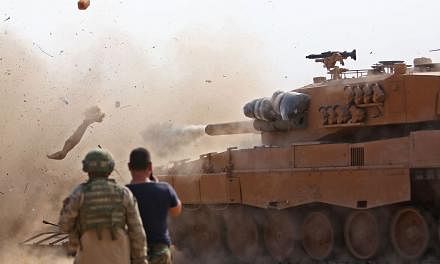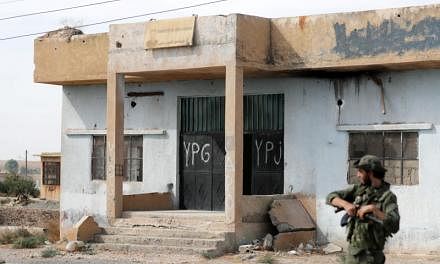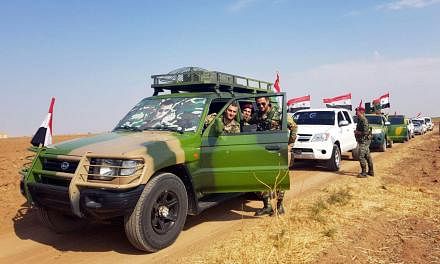DOHUK (Iraq) • The Pentagon is considering keeping some US troops near oilfields in north-eastern Syria alongside the Kurdish-led Syrian Democratic Forces (SDF) to help deny oil to militants from the Islamic State in Iraq and Syria (ISIS), said Defence Secretary Mark Esper yesterday.
US troops are crossing into Iraq as part of a broader withdrawal from Syria ordered by President Donald Trump, a decision that allowed Turkey to launch an offensive against the SDF which for years was a US ally battling ISIS in the region.
More than 100 vehicles crossed the border into Iraq early yesterday from the north-east tip of Syria, where Ankara had agreed to pause its offensive for five days under a deal with Washington.
The truce expires late today, just after Turkish President Recep Tayyip Erdogan is expected to discuss the next steps in the region at a meeting in Russia with President Vladimir Putin.
Speaking to reporters during a trip to Afghanistan, Mr Esper said that while the US withdrawal was under way, some troops were still with partner forces near oilfields and there had been discussions about keeping some of them there.
He said that was one option and no decision had been made "with regard to numbers or anything like that". The Pentagon's job was to look at different options, he added.
"We have troops in a couple of cities that (are) located right near that area," Mr Esper said.
"The purpose is to deny access, specifically revenue to ISIS and any other groups that may want to seek that revenue to enable their own malign activities."
Mr Trump's move to pull out troops has opened a new chapter in Syria's more than eight-year war and prompted a rush by Turkey and by the Damascus government and its ally Russia to fill the vacuum left by the US.
His decision has been criticised in Washington and elsewhere as a betrayal of Kurdish allies who had fought for years alongside American troops in a region rich in oil reserves and farmland.
The New York Times reported late on Sunday that Mr Trump was now leaning in favour of a new military plan to keep about 200 US troops in eastern Syria near the Iraq border. The White House did not respond to a request for comment.
Turkey is seeking to set up a "safe zone" as a buffer against the YPG militia, the main component of the SDF. Ankara considers the YPG to be a terrorist group due to its links to Kurdish insurgents in south-east Turkey.
Mr Erdogan has said Ankara will resume its assault in Syria when the deadline expires today if the SDF has not pulled back from its proposed zone, which spans much of the border.
"We will take up this process with Mr Putin and after that we will take the necessary steps" in north-eastern Syria, Mr Erdogan told a forum in Istanbul hosted by broadcaster TRT World yesterday.
Mr Erdogan has also said Turkey will set up a dozen observation posts in the "safe zone", prompting criticism from Iran.
"We are against Ankara's establishing of military posts in Syria," Iran's foreign ministry spokesman Abbas Mousavi told a weekly news conference broadcast live on state TV yesterday.
"The issues should be resolved by diplomatic means... Syria's integrity should be respected," said Mr Mousavi, whose country is a staunch ally of Syrian President Bashar al-Assad.
Meanwhile, Russian Defence Minister Sergei Shoigu was quoted as saying that Moscow, which is also allied with Damascus, hopes its coordination with Washington and Ankara will help security and stability in the region.
Turkey's nearly two-week-old offensive has displaced some 300,000 people and led to 120 casualties among civilians and 470 among SDF fighters, the Syrian Observatory for Human Rights said on Sunday. Turkey says 765 terrorists but no civilians have been killed in its offensive.
Yesterday, Reuters video images showed armoured vehicles carrying American troops and equipment through the Sahela border crossing into Iraq's northern province of Dohuk.
On Sunday, the SDF said it had withdrawn from the border town of Ras al Ain under the US-brokered ceasefire deal, but a spokesman for the Turkish-backed Syrian rebels said the withdrawal was not yet complete.
Turkish security sources yesterday said Kurdish YPG forces were advancing towards Al Hasakah, which is south of the proposed safe zone, adding that some 125 vehicles had already left. They also said more than 80 Kurdish militants had been captured alive or had surrendered to Turkish forces.
